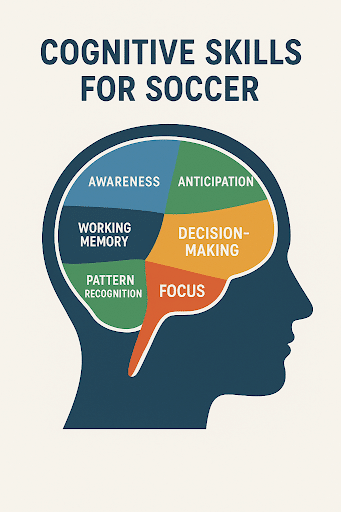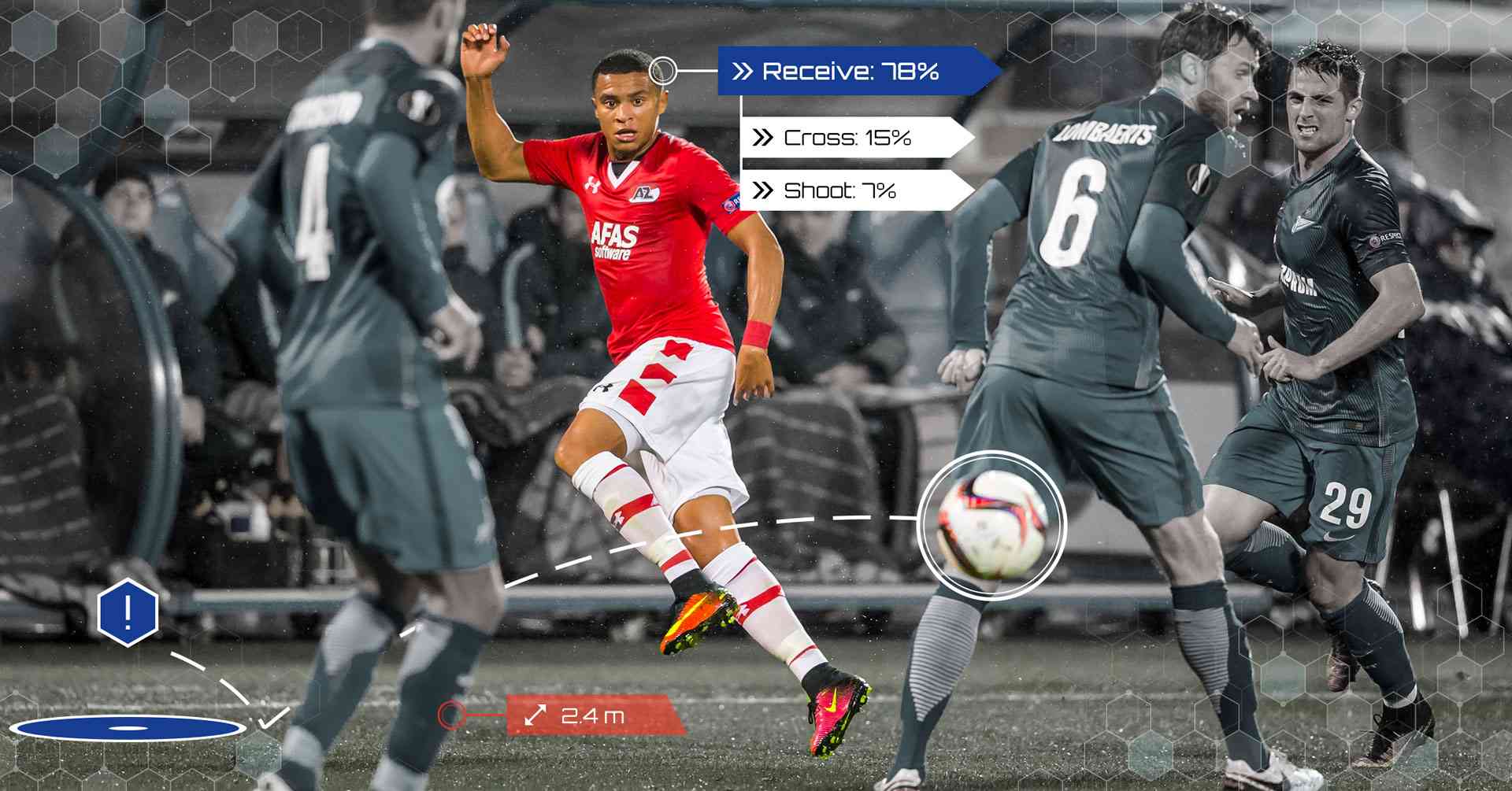Soccer is not only a physical game—it’s a mental one. Players at every level talk about “soccer IQ,” that almost instinctive ability to read the game, make the right decisions, and react quickly under pressure. But is soccer IQ something you’re born with, or can it be trained?
The good news: just like your body, your brain can be trained. Cognitive training tools like Soccer IntelliGym have been scientifically tested to improve decision-making, anticipation, and overall performance on the field.
What Is “Soccer IQ”?
Soccer IQ refers to a player’s game intelligence—the ability to process information and make fast, effective decisions in dynamic match situations. It’s what separates good players from great ones.
Core elements of Soccer IQ include:
- Situational Awareness: Knowing where teammates, opponents, and the ball are at all times.
- Anticipation: Reading the play before it happens.
- Decision-Making Speed: Choosing the best option instantly under pressure.
- Adaptability: Adjusting to changes in the game on the fly.
- Divided attention → tracking ball, teammates, and opponents simultaneously.
- Working memory → remembering tactics while making quick in-game decisions.
Why Do Cognitive Skills Matter in Soccer?
Even the fastest, strongest players struggle without sharp mental skills. Soccer is a high-speed, chaotic sport that requires players to process multiple inputs in seconds.
A player with strong cognitive skills will:
- React faster to sudden changes.
- Avoid costly mistakes under pressure.
- Find creative solutions in tight spaces.
- Support the team’s tactics more effectively.
How Brain Training Works
Cognitive training for soccer focuses on strengthening the brain’s “software” rather than the body’s “hardware.” The Soccer IntelliGym is a proven method that uses video-game style scenarios to train players’ decision-making, attention, and anticipation.
Step-by-Step: Training Your Brain for Soccer
- Engage in Game-Like Challenges
The IntelliGym presents scenarios that mimic real soccer situations—without a ball or field. - Boost Core Cognitive Skills
Training improves focus, spatial awareness, and multi-tasking. - Transfer Skills to the Field
The brain learns patterns and applies them during real matches. - Repeat Regularly
Just like physical fitness, cognitive fitness requires consistent training (2–3 sessions per week, 30 minutes each).
Research Findings
A study conducted at VU University Amsterdam tested the Soccer IntelliGym’s effectiveness:
- Players who trained with the program improved their on-field performance significantly compared to a control group.
- Benefits included better positioning, quicker decision-making, and improved passing accuracy.
- Coaches reported noticeable improvements in tactical awareness within just a few weeks.
Benefits of Brain Training for Soccer
| Cognitive Skill | On-Field Advantage |
| Spatial Awareness | Better positioning and fewer defensive errors |
| Decision-Making Speed | Faster passes and smarter choices |
| Focus & Concentration | Fewer mistakes in high-pressure situations |
| Anticipation & Pattern Recognition | Winning duels, intercepting passes |
| Creativity | More effective attacking options |
Example Training Schedule
Week Plan for IntelliGym Users
| Day | Activity |
| Monday | 30-min IntelliGym session + practice |
| Wednesday | 30-min IntelliGym session |
| Friday | 30-min IntelliGym session + review |
| Weekend | Game day – apply brain skills on field |
Infographic: Cognitive Skills in Soccer

Conclusion
Soccer IQ is not just a talent—it’s a skill you can train. By developing your brain alongside your body, you’ll gain the edge needed to succeed at every level of the game.
Ready to start training your brain?
👉 Try Soccer IntelliGym today and take your game intelligence to the next level.


